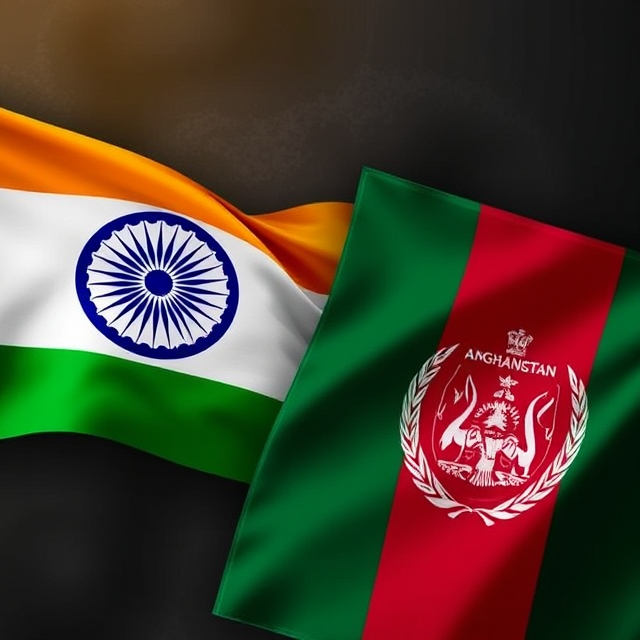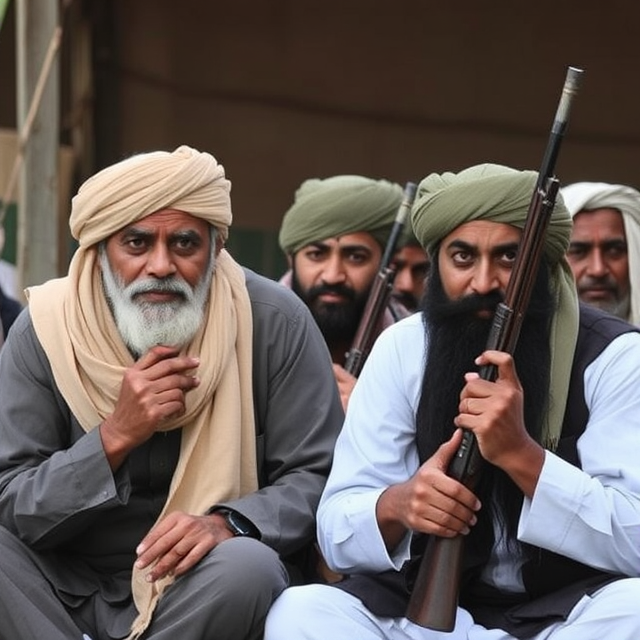
Strategic Engagement: India’s evolving ties with the Taliban focus on ensuring Afghanistan’s stability to counter terrorism threats, secure regional connectivity, and balance Pakistan’s influence.
Economic and Humanitarian Goals: India leverages its goodwill in Afghanistan through humanitarian aid, infrastructure support, and soft power to safeguard strategic and economic interests.
Regional and Moral Challenges: India’s engagement with the Taliban faces challenges from Pakistan and China, while also raising moral dilemmas concerning human rights and domestic criticism.
India’s diplomatic relations with the Taliban have shifted since the Taliban’s seizure of power in Afghanistan in August 2021. Earlier consistent, India’s engagement has gotten more calculating, primarily to protect its South Asian security and economic concerns. India has long had relations with Afghanistan mostly in the form of cultural and political relations. India has been providing more than $ 3 billion as aid and reconstruction after the formation of new Afghanistan in 2001 after the support from America to oust the Taliban government. Despite this, India has been very cautious in its interaction with the Taliban mainly because of its fundamentalist nature and its patrons in Pakistan. Coming back to power in 2021, the Taliban forced the Indian side to think over its Foreign policy strategy. The rather abrupt pullout of American troops could provide few choices for India because most countries started to deal with the Taliban for whatever they wanted. At first India tried to avoid engagement in Afghanistan through a policy defined as “cold start” meaning an absence of active involvement. PHE noted this trend though the shift seems to point towards more active participation for the past few years.

Another high-level contact occurred when in January 2025 Vikram Misri the Indian Foreign secretary met with Amir Khan Muttaqi the acting foreign minister of the Taliban of Afghanistan. It is typical of the proliferation of diplomatic relations between India and the Taliban. Scholars posit that this carry-on is undertaken for purposes of pecuniary interest and not for principles. For India, the stake in Afghanistan is high; any less influence in Afghanistan means more Pakistani influence, more terrorist infiltrations into India.
In this context, the purpose that India engages with the Taliban is to ensure stability in Afghanistan. To mute the threat that emerged from organizations such as ISIS-Khorasan Province (ISKP), a stable Afghanistan is necessary which does not allow the formation of threatening conditions for India. Besides, the Indian engagement may prompt the Taliban to curb anti India activities. India has its strategic importance in Afghanistan mainly for the economic reasons where India needs Afghanistan for accessing the Central Asian countries. Taliban’s call for help in reconstructing Afghanistan also avails Indian strategic interest of improving connectivity through the region. Moreover, the fact that India historically enjoys positive sentiments among the Afghans could well enable bilateral business as otherwise the Taliban’s style of managing things does not sound particularly hospitable to economic relations. India has claimed itself as a ‘first mover’ in humanitarian crises inside Afghanistan. Hence, if India is to continue catering its humanitarian services for health services and education, it will ultimately be used for increasing its soft power and assert its attitude that it remains a friendly country in the international political system.

Talking with the Taliban has a moral dilemma that India faces. The brutality of the regimes towards the rights of Indians particularly the right to education for women goes against the grain of India’s image as a democratic nation upholding human rights. This contradiction could lead to domestic criticism and affect the position that India should occupy in the international field. While there is optimism that reciprocal interaction with the Taliban minimizes terrorism threats, uncertainty regarding the Taliban’s capacity or determination to disown LeT and JeM – the two banned outlaw organizations that are inimical to India still persists. These groups have historical links with the Taliban raising questions about the ability of the Taliban as a partner in counterterrorism. India’s participation may not augur well with other players in the region especially Pakistan and China. Since Pakistan considers Indian influence in Afghanistan as a threat to its authority and security, it is a permanent United front. Moreover, China has recently been increasing its interaction with the Taliban, and this may result in emergence of competition on further influence on Kabul.
Implications for Regional Security
India’s approach towards the Taliban has significant implications for regional security dynamics. Sustainable Afghanistan under a more manageable Taliban might additionally lower cross-border terrorism and have positive implications for regional integration in trade corridors like Chabahar being an Indian project. But if the Taliban side does not live up to its security commitments, or fails to stop harboring groups hostile to India, or if these groups are not dissolved, conflict may intensify. Besides, the more involvement of India could cause a reaction from Pakistan that could amplify instability in the shared border. The fragile power situation in the South Asian region therefore requires close attention in maneuvering the diplomatic dance so as not to fan current tensions. India is now evaluating its policy of dealing with the Taliban due to geopolitical realities. Whereas there are likely advantages that include increased regional security and economic opportunity, there are also still likely major liabilities that may offset this. Moral imperatives will, however, need to be aligned with the strategic interest of India as it finds its way into this playing field. If India goes along with the Taliban, it is not simply about embracing change but directing change in directions favorable to India as well as friendly to democratization. The years will be quite defining as India is going to carry forward its relationship with Afghanistan under uncertain circumstances but on maintaining the peace and stability of the region.
References:
- Kumar, Ruchi. “Why Is India Courting the Taliban Now?” Al Jazeera, January 11, 2025. https://www.aljazeera.com/features/2025/1/11/why-is-india-courting-the-taliban-now.
- Middle East Institute. “India-Taliban Relations: A Careful Balancing Act, Driven by Pragmatism,” n.d. – https://www.mei.edu/publications/india-taliban-relations-careful-balancing-act-driven-pragmatism.
- “The Wire: The Wire News India, Latest News,News From India, Politics, External Affairs, Science, Economics, Gender and Culture,” n.d. https://thewire.in/diplomacy/india-taliban-pakistan.
- Krishnan, Murali. “Why India Is Boosting Diplomatic Relations With the Taliban.” Dw.Com, January 10, 2025. – https://www.dw.com/en/why-india-is-boosting-diplomatic-relations-with-the-taliban/a-71265248.
- Ramachandran, Sudha. “India Steps up Engagement With the Taliban Regime.” The Diplomat, January 10, 2025. – https://thediplomat.com/2025/01/india-steps-up-engagement-with-the-taliban-regime/.
- Biswas, Soutik. “Why India Is Reaching Out to the Taliban Now,” January 14, 2025. https://www.bbc.com/news/articles/cp8ke9e27dxo.
Shrivara Mahajan is pursuing an International Relations major with a minor in Public Policy at OP Jindal Global University. He is a Senior Intern at the Jindal Centre for the Global South and has priorly interned with The Spread Smile Foundation. Views expressed are the author’s own.
